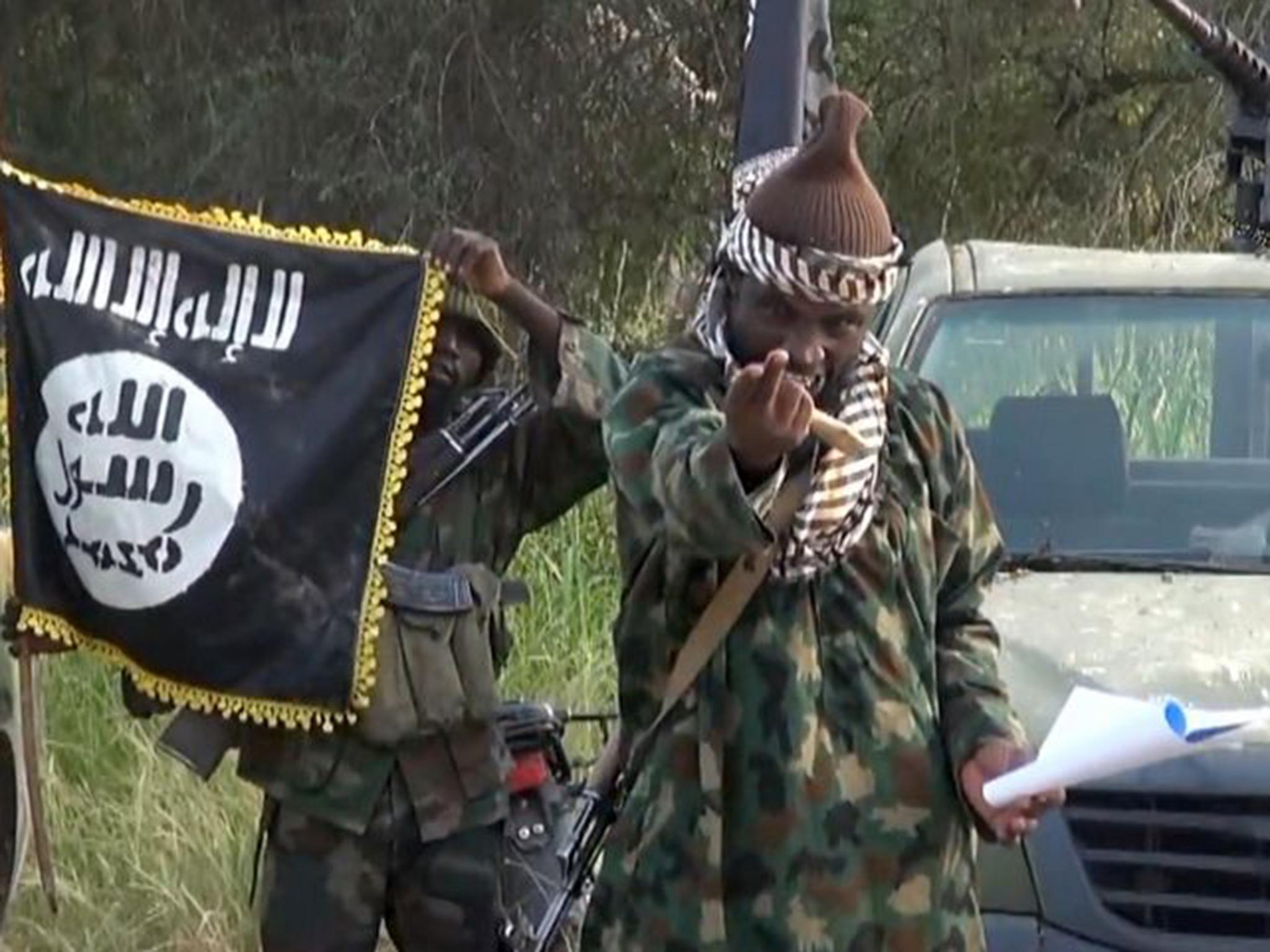Boko Haram descends into in-fighting as reports emerge of deadly clashes between rival Islamist factions
Two leaders vie for power as followers argue over who is following 'true jihad'

New reports have emerged on in-fighting between rival factions of the Boko Haram militant group, as the jihadists feel the pressure of a concerted Nigerian military push and the number of desertions continues to rise.
The apparent split in the group began last month when an Isis media wing announced Abu Musab al-Barnawi as the new leader of Boko Haram, which pledged allegiance to the Middle East insurgency in March last year.
But the previous leader, Abubakar Shekau, insists he is still in charge, and the AFP news agency quoted local sources saying deadly skirmishes have now broken out between supporters of either man.
Nigeria’s military has declined to comment on the development, but at least half a dozen Shekau supporters are reported to have been killed and more wounded in clashes across three villages in the Monguno area of Borno state.
Mele Kaka, who lives in the area, told AFP the Barnawi faction had launched the attacks in each case, on areas controlled by Shekau supporters.
After each attack, he said, the Barnawi fighters told villagers the other faction had “derailed from the true jihad” by killing innocent people and looting their property.
The Isis-supporting faction has previously rejected Shekau’s preferred strategy of suicide bombings in crowded areas. In comments shortly after he was named the new leader, Barnawi criticised his predecessor for “targeting the ordinary people”.
The Bloomberg news agency also carried reports of the skirmishes, which appear to have occurred late last week. News can take time to travel in Nigeria’s war-ravaged northeastern region, where up to 2.5 million people have been displaced from their homes and most basic infrastructure like telecommunications lines have been destroyed.
Ali Mohammed, a member of an army-supporting vigilante group based in Monguno, told Bloomberg around 18 Boko Haram fighters were understood to have surrendered to the army, along with their families, following the in-fighting.
“They are under custody of Monguno command and we believe the dual battle between Barnawi's and Shekau’s camps may have compelled them to sneak out and surrender,” he said.
Despite all its recent setbacks, Boko Haram continues to pose a serious threat to the region.
Yesterday a Reuters reporter who rode along with the Nigerian army reported soldiers firing indiscriminately into the bush throughout the journey, because of a constant fear of ambush.
The army has reclaimed a number of key towns in Borno state since former military leader Muhammadu Buhari became president last year and the military moved its base of operations to the northeast city of Maiduguri.
But heavy rains have halted its advance towards the Sambisa forest, which the government describes as Boko Haram’s final bolthole, whose dirt roads are ill-suited to heavy tanks and artillery.
Food is scarce in the areas still controlled by Boko Haram and the group is reported to be low on other supplies and ammunition. But the shortages are hurting those still living in the area just as much as it is the militants.
"We had to leave the bush because we were hungry," said Haja Jamil, 40, a pregnant yet painfully thin woman who arrived at the recently liberated city of Bama two weeks ago with two children.
She told Reuters: “Boko Haram kept coming and hassling us. We are still afraid of them.”
Join our commenting forum
Join thought-provoking conversations, follow other Independent readers and see their replies
Comments